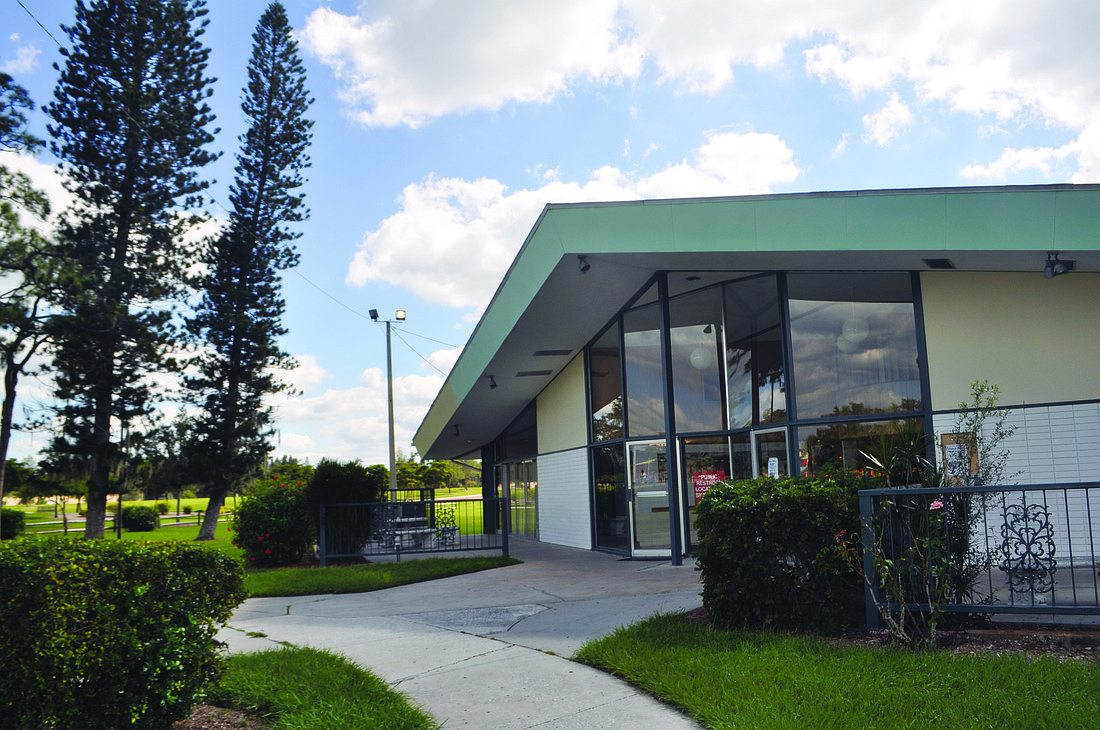- April 23, 2024
-
-
Loading

Loading

In 2012 and 2013, the City Commission set aside money for the demolition of the Payne Park Auditorium, citing concerns about the cost of maintenance for the aging building. With the city once again going through budget workshops this week, a group of citizens hopes the auditorium’s fate has taken a turn for the better.
Beginning last fall, the city has worked to gather residents’ opinions about the auditorium as part of a larger Payne Park master planning process. At a public workshop in December, a crowd of about 50 people gathered; most were there to campaign for the preservation of the auditorium.
Since then, the city has worked with the consulting group David Johnston Associates to process citizen input and begin developing options for the future of the park. Staff held another public meeting Tuesday to share the results gathered to date and to collect additional information. Between the initial workshop and a survey conducted earlier in the year by the city, staff said the response has been overwhelmingly in favor of maintaining the auditorium.
As a result, the two parties will now work to develop options for the future of the auditorium that include the preservation and renovation of the building, such as upgraded air conditioning and structural repairs.
Already, the city has spent $13,000 on installing new hardwood floors. Although the City Commission has shown a lack of interest in repairing a building that has required a subsidy of more than $100,000 to balance operating expenses, Smith said the master planning process was intended to reflect the desires of citizens.
“The goal of the master plan and the whole city involvement is to try to get (the auditorium) used more by the community,” Smith said. “It is an asset, and we want to try to make it a bigger asset.”
The question of funding is one that looms over the entire process. Smith said the limited available funds would be an important factor as plans moved forward, and Public Works General Manager Todd Kucharski said commissioners would have to balance the wants of residents with the reality of the city’s fiscal situation.
“Overwhelmingly, you can see there’s a commitment to want to do something here,” Kucharski said. “With that being said, the commission will be as proactive as they can financially.”

One path is gaining a historic designation for the building. Cliff Smith, a city senior planner, said that historic designation would preserve the character of the building and allow for upgrades while not requiring the city to bring the building entirely up to the current code standards.
If the auditorium were to receive a historic designation, it would also allow the city to pursue the same types of grants that were used to help fund renovations at the Sarasota Municipal Auditorium. Although the status would impose certain design standards on improvements, Smith said the auditorium could still be modernized, to a certain degree, as a historic building.
“Historical buildings are intended to be used,” Smith said. “They’re intended to be able to function.”
At Tuesday’s meeting, several attendees repeated a frequent complaint about the auditorium: It would see more use if it was more affordable. Residents of the nearby Laurel Park and Alta Vista neighborhoods suggested the city return to its previous policy of allowing neighborhood groups and other community organizations to use the facility for free — or at least at a lower price point than the current rental rate of $200 per hour.
Stan Zimmerman, former president of the Coalition of City Neighborhood Associations, said allowing neighborhood groups easier access to the auditorium would serve to generate publicity for a space that residents often overlook.
“It’s not just for the convenience of the neighborhood associations but also to spread the word that this is what the facility looks like, this is the people it can handle,” Zimmerman said. “Start to use the word of mouth to build an audience for the hall.”
Although most were in favor of preserving the building and praised its historic nature, some attendees questioned if the building was worth saving. Millie Small, chairwoman of the city’s Parks, Recreation and Environmental Protection Board, said the city should consider whether a new, more recreation-focused building would be of more use to the general public at the park.
“This is 20 or so people (attending the meeting) who are very passionate, but in my mind — sometimes ‘historic value’ has to be compared to ‘old,’” Small said. “Are some things old, or are they historic?”
Kate Lowman, a member of the Laurel Park Neighborhood Association Board, said the city was sorely lacking a civic space that residents could use and that the auditorium was the ideal building to fit that mold. She said she was sympathetic to the desire to generate income at the building, but in her eyes, the primary purpose of the auditorium should be to provide a space for the public.
Going forward, Lowman said the auditorium’s purpose was a central issue as the city continues to deliberate its future.
“I think we have to answer the philosophical question: Why do we want a building here?” Lowman said. “What is its purpose?”
Contact David Conway at [email protected]